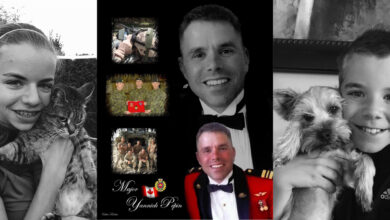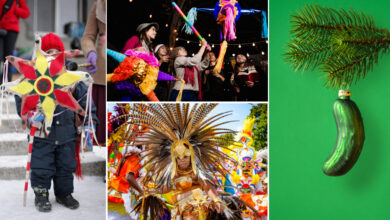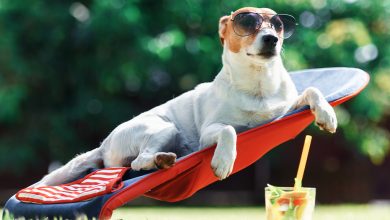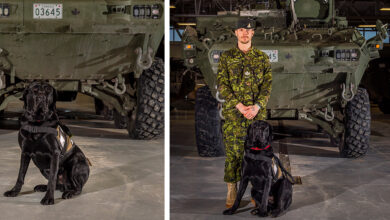Best of CMF Magazine
Year of the Korean War Veteran
Veteran’s Affairs Canada (VAC) has declared 2013 to be the year of the Korean War Veteran. If you’re drawing a blank about the details of the Korean War, you’re not alone. It has been dubbed “Canada’s Forgotten War”, and 2013 marks the 60th anniversary of the signing of the armistice that marked the end of active hostilities between the two Koreas. Canada played a significant role in the conflict from 1950 – 53, with more than 26 000 Canadians serving in the theatre, 516 of whom paid the ultimate price to win freedom for the southern half of the Korean peninsula.
The aim of declaring 2013 the Year of the Korean War Veteran will be to educate Canadians across the country of the sacrifices and accomplishments of Canadians in that conflict. Although the war never officially ended, and the peninsula remains divided, the stunning progress and development of The Republic of Korea (South Korea) is a testament to the legacy of Canada’s commitment in the conflict.
Canada’s contribution to the Korean War involved all three services, the Royal Canadian Navy (RCN), the first to see action, the Canadian Army, and the Royal Canadian Air Force (RCAF). Their impact was nothing short of remarkable, and those who served have left a significant legacy. In addition to being the first Canadians in theatre, the RCN famously had their “Trainbusters Club” bombarding North Korean supply trains along the coast, as well as the perilous journey 30 kilometres upriver led by the destroyer HMCS Cayuga to relieve the besieged South Korean town of Chinnampo in 1950.
The RCAF was next to leap into action assisting American and Korean forces with the RCAF 426 Squadron who delivered three million kilograms of freight, and 13,000 personnel to the Korean theatre. In addition 22 RCAF pilots served on exchange with the United States Air Force (USAF). One of these pilots, Flying Officer Omer Levesque, was the first Commonwealth pilot to shoot down a North Korean MiG-15 fighter.
The biggest impact of the Korean War fell on the Canadian Army. In many ways the war was unique for the Canadian Army, and may likely never be repeated. The Army had largely demobilized and was reduced to a mere shell of itself at the end of the Second World War. With no significant standing forces to divert and contribute, (at this same time Canada was also sending forces to augment the newly created NATO in Europe) Canada quickly mobilized for the Korean War by creating the Canadian Army Special Force (CASF) for duty in Korea. Volunteers, many of them Second World War veterans, were enlisted for a period of 18 months. In fact the commander of the newly recreated 25th Canadian Infantry Brigade, Brigadier J.M. Rockingham, was a Second World War veteran himself lured from civilian life to command the brigade in Korea.
Although termed a United Nations “police action” at the time, there was never any doubt in the minds of those who fought that this was indeed a war. Korean War veteran Gordon Harrison feels it may have been Canada’s Forgotten War because it paled in comparison to the epic, and global pitched battles fought with massive armies that characterized the Second World War that had ended just five years previously. Perhaps it was war weariness and an effort to play down the simmering Cold War that was building between East and West. Whatever the reason, for those who fought in Korea the battles at Kapyong, Hill 355, and The Hook were no less intense and deadly than the battles many had fought in the previous war.
A major driving force behind the Government of Canada’s efforts in dedicating 2013 as the Year of the Korean War Veteran, is to put to rest the notion of Korea being Canada’s Forgotten War. This year will see many events, large and small, dedicated to educating Canadians about the war and its impacts, as well as recognizing and thanking veterans of the conflict for their sacrifices. As Lt.-Gen Semianiw, Commander of Canada Command put it, “The significance of doing this on the 60th instead of the 75th anniversary of the conflict is that we still have a large number of these veterans.” In fact, Semianiw participated in the Korean revisit program in April of this year along with the former Minister of Veteran’s Affairs Steven Blaney. Canada had the largest Commonwealth contingent of veterans and their families.
One of the major events to mark this anniversary included the playing of the “Imjin River Classic” hockey game on the Rideau Canal in February. This commemorated the games the Canadians played on the makeshift arena on the frozen Imjin River in South Korea in 1952. Teams made up of current serving Canadian Armed Forces members, parliamentarians, veterans, and other guests vied once again for the coveted Imjin Cup repatriated from Korea for the occasion. There are also three revisit programs for Korean veterans and a caregiver or family member to travel to South Korea, with most expenses paid jointly by the Canadian and Korean governments.
Gordon Harrison was on the revisit trip in April, and it was the first time he had been there since deploying back to Canada in 1954. When he first arrived in Korea in 1953 he was shocked by the destruction and devastation he saw when they arrived in Seoul by train. The city had been hit hard, overrun twice by that point, without a bridge left standing. The shock was no less on his return trip as there was nothing left that he recognized. The country simply hasn’t been rebuilt, it has been completely transformed, or it must be said, almost completely transformed. The only areas familiar to him were the old battlefields near the DMZ. The contours of the hills were still recognizable despite now being overgrown with foliage.
Mr. Harrison understands how Korea became forgotten; it barely registered at home even at its height. He betrays no bitterness over this fact, as he related “there were no accolades, but that’s not what I went for anyway. It was for the fight against communism, and probably a lot of youthful adventure too.” But one thing that absolutely stood out for him was how it was not forgotten in Korea. The Korean people were genuinely grateful to all the veterans on the trip, and not just the ones employed to help organize it. Banners welcomed them everywhere, and whenever ordinary Koreans recognized them as veterans they were immediately greeted with a beaming smile, or approached with a firm handshake and thanks for coming to their country’s aid.
When he left Korea in 1954 it was a devastated country. “At the time it was dust, nothing. We figured the north would eventually overrun it. The people were very poor and had been badly beaten up by the war.” He had no idea what it would eventually become. He remarked how upbeat and confident the Koreans of today are. When I asked him, looking back now, if it was worth the sacrifice of so many lives, he answered without hesitation, “Yes, of course. You only have to look to the north and see the difference, what they could have become if we hadn’t gone.”
While Mr. Harrison and his comrades may not have volunteered for recognition, they nonetheless deserve it all the more for their quiet professionalism. They more than deserve all the gratitude we can muster for what their sacrifices, in Canada’s name, have won for the Korean people. Five hundred and sixteen never made it home, many more were wounded in mind and body, but South Korea remains free and vibrant, beating what seemed to be overwhelmingly hopeless odds 60 years ago. This year, 2013, should indeed mark the end of Korea being forgotten and we should follow the example of South Koreans and thank these veterans for what they sacrificed and accomplished there 60 years ago.
By Patrick Twomey









